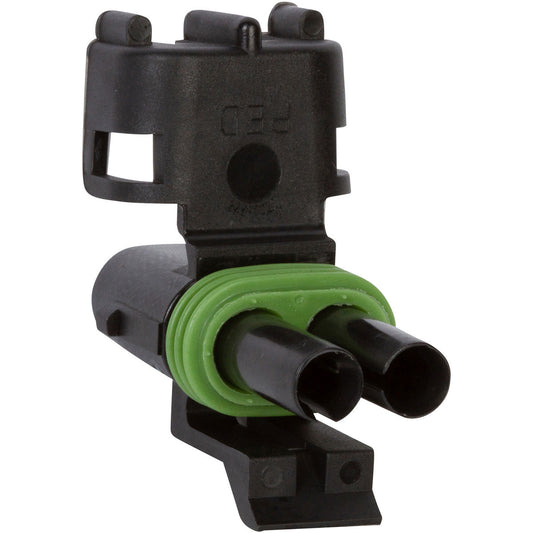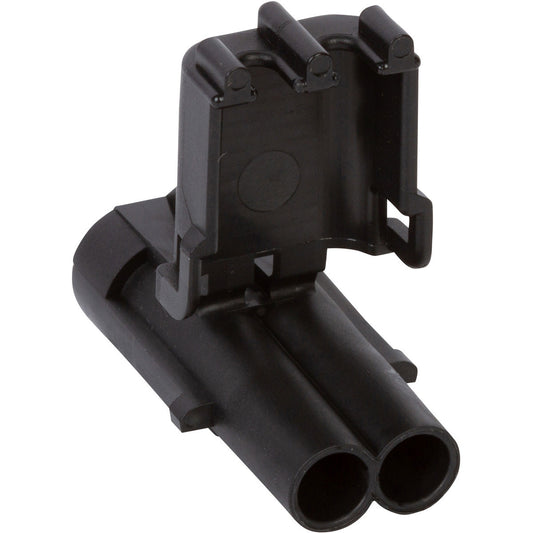When it comes to ensuring secure, moisture-resistant electrical connections, Delphi’s Weather Pack connectors are a top choice. Whether you're working on automotive, marine, or industrial applications, these connectors offer durability and reliability in harsh environments. In this guide, we'll explore everything you need to know about purchasing high-quality Weather Pack connectors, including costs, common challenges, and the advantages they offer compared to other connector types.
What Are Weather Pack Connectors?
Weather Pack connectors are environmentally sealed connectors designed to withstand moisture, dirt, and extreme temperatures. They are commonly used in automotive, agricultural, and industrial applications where exposure to harsh conditions, especially fluids and moisture, is a top concern.
Key Features:
-
Sealed Design: Protects against water, dust, dirt, and chemicals.
-
Durability: Built to endure vibrations and temperature fluctuations.
-
Varied Configurations: Available in configurations of 1, 2, 3, 4, 5, and 6 cavities. Additionally, there's a 22 cavity mountable bulkhead configuration for larger setups.
-
Low Energy Application: These connectors are ideal for low energy needs, supporting up to 20 amps.
-
Wire Gauge Compatibility: Suited for the most common automotive wire gauges of 22, 20, 18, 16, 14, and 12 gauge, ensuring compatibility with a variety of wiring systems.
-
Built-in Secondary Locking Mechanisms: These built-in locks on the connector body enhance ease of use and ensure secure connections.
- Streamlined Product Line: The compact range of Weather Pack connectors allows for covering a broad array of wiring needs with fewer components, reducing both cost and complexity.
By selecting the right connectors and understanding their comprehensive features, you can ensure efficient and reliable electrical connections in a variety of applications.
What Is the Typical Cost Range for High-Quality Weather Pack Connectors?
The price of Weather Pack connectors varies depending on factors such as pin count, gauge size, and mating key configuration. Generally, you can expect the following price ranges:
- Basic Kits (1-2 pin connectors): <$7
- Higher Cavity Count Kits (3-6 pin connectors): $7 - $12
- Comprehensive Kits (assortments for multiple applications): $75 - $400
Investing in high-quality connectors from reputable brands like Weather Pack ensures longer service life and reliable performance in challenging environments.
What Are the Most Common Issues Faced With Weather Pack Connectors in Harsh Environments?
Despite their rugged design and versatility, Weather Pack connectors aren’t perfect for every application. Some of the most common challenges include:
-
Submersion in Fluids: It’s important to note that while Weather Pack connectors are sealed against moisture and spray, they're not designed to remain submerged in fluid. If you need a submersible connector, the Weather Pack series may not be suitable for your needs.
-
Pin Damage: Frequent disconnections and reconnections can degrade contact points on tin plated terminals.
-
Improper Crimping: Poor installation techniques can result in weak electrical connections and allow the ingress of dust and fluids into the connector housing.
-
Capacity Limitations: Weather Pack connectors are designed for low amperage, supporting a maximum of 20 amps per circuit, which might not be sufficient for higher power applications.
-
Larger Footprint: These connectors are not the smallest or most circuit-dense options available, which may not make them ideal for applications requiring compact solutions or in tight spaces.
To prevent these issues, it's crucial to evaluate the unique needs of your project, ensure proper installation, and conduct regular inspections to maintain optimal performance and durability.
What Are the Key Benefits of Using Weather Pack Connectors Over Other Types?
Weather Pack connectors offer several advantages that make them a preferred choice over standard connectors:
-
Superior Environmental Protection: Weather Pack connectors feature triple-ribbed silicone seals that prevent water ingress, ensuring that connections remain secure even in harsh environmental conditions.
-
Ease of Maintenance: These connectors are designed for easy disconnection and reconnection without compromising the seal, making maintenance tasks simpler and faster.
-
Versatility: Suitable for a variety of applications, from automotive to marine and heavy equipment, Weather Pack connectors are adaptable to numerous environments and requirements.
-
Ease of Replacement: Weather Pack connectors are commonly available from a variety of suppliers, making it easy to find replacements and maintain a consistent supply for repairs or upgrades.
-
Mix and Match Wire Gauge: All Weather Pack terminals are designed to fit into all connector cavities, allowing you to mix and match wire gauges from 22 to 12ga. This flexibility is particularly useful in complex assemblies where various wire sizes are needed.
-
Distinctive Design: The distinctive design of Weather Pack connectors makes them easily identifiable, which is an advantage when performing repairs or replacements. This feature can save time and reduce errors during troubleshooting and maintenance.
Frequently Asked Questions: Weather Pack Connectors
What is the current rating for Weather Pack connectors?
Weather Pack connectors have a current rating of 0 to 20 amps.
What is the major difference between a Metri-Pack and Weather Pack connector?
While both product lines are manufactured by Delphi, Metri-Pack connectors are available in multiple sizes (150, 280, 480, 630, 800, etc.) and in sealed or unsealed options, which makes them better suited to more specific application needs. However, this variety requires a more extensive inventory of parts to cover all bases. In contrast, Weather Pack connectors offer a more universal solution, designed to meet the most common electrical connector needs with fewer variations.
What is the most common electrical connector?
In automotive applications, box and blade connectors and Weather Pack connectors are among the most commonly used types due to their ease of installation and reliability. Weather Pack connectors, with their robust design, are particularly favored in environments where exposure to moisture and dirt is a frequent concern.
Where are Weather Pack connectors most commonly used?
Because of their weatherproof design, Weather Pack connectors are very common in automotive, marine, agricultural, and industrial applications where exposure to dust and fluids is a concern. The family's limited size range and adaptability to different numbers of circuits and a wide range of wire gauges make them highly favored in settings where connections are regularly damaged, replaced, or in need of repair.
How to Identify Weather Pack Connectors?
Weather Pack connectors can be identified by several distinctive features:
-
Distinctive Round Pin and Sleeve Terminal Design: This characteristic shape is a quick visual indicator of a Weather Pack connector.
-
Typically Black Thermoplastic Housing: This material is chosen for its durability and resistance to environmental factors.
-
Triple-Ribbed Silicone Seal: This seal is crucial for providing superior environmental protection. Front seals on connector housings are visibly noticeable by their bright green color.
-
Built-In, Swing-Down TPA Locking Mechanisms: These mechanisms ensure a secure connection by locking the terminal position assurance (TPA) device in place once the terminals are correctly installed.
- Dual Locking Tangs on the Side of the Terminals: These tangs provide an additional layer of security, ensuring that the terminals remain firmly connected, reducing the risk of disconnection due to vibrations or handling.
Conclusion
Investing in high-quality Weather Pack connectors ensures long-lasting, reliable performance in challenging conditions with the added benefit of quick and easy repairs. Understanding their cost, common uses, and benefits helps you make an informed purchase decision.
For a wide range of premium Weather Pack connectors, visit our product page.



